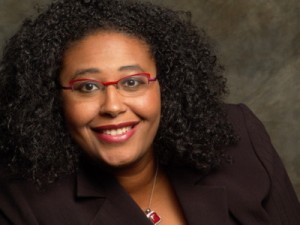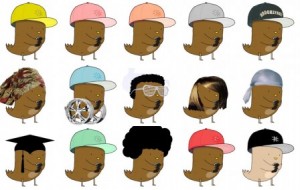#IfSantaWasBlack. #YouKnowYouGhettoWhen. #BlackParentsQuotes.
If you find yourself on Twitter fairly often, you’ve probably seen at least one of the aforementioned phrases on the social networking site’s top Trending Topics, which have become increasingly dominated by similar subjects over the past few years. But how are these topics coming about? Who is creating them?
Apparently, the answer is simple: Black Twitter.
Interest in the urban dominance of Twitter has increased along with the growth of the phenomenon itself, naturally provoking many people to give it greater thought: one of those people is Kimberly Ellis, Ph.D., of Pittsburgh, PA. Ellis has come to be known as Dr. Goddess throughout the social media universe.

Dr. Goddess, an African American writer, entertainer, entrepreneur, scholar, and activist, has observed the impact of Black Twitter firsthand, and has been influenced to educate others on the subject for more reasons than one. The panel she will be leading at SXSW Interactive, The Bombastic Brilliance of Black Twitter, will focus specifically on the flourishing of black culture in the realm of the social media site, and the implications of its influence.
So, what is Black Twitter?
“It’s really just black people on Twitter, and what we do that shows up as cultural patterns on Twitter,” Dr. Goddess said. “It won’t be all-inclusive or all-encompassing, because we exist as both individuals and as a collective. You can be black, and you can be on Twitter. But in order to classify it as ‘Black Twitter,’ there has to be a cultural response,” Dr. Goddess said.
“You have to look at black culture first. You start to see the essential interests: it’s the language we use, it’s what we pay attention to, it’s how we express what we like, how we talk about what we like, it’s the friends we create, the businesses we form, the people we support, the music we listen to. Black Twitter is black culture on Twitter, and you have to have a clue as to what black culture is in order to recognize it and appreciate it.”
Dr. Goddess was moved to begin educating the uneducated on the topic of Black Twitter because others that previously attempted to do so were simply getting it wrong. One of those attempts was an encapsulating article published by Slate in August 2010, called How Black People Use Twitter.

“It was just so offensive,” Dr. Goddess said in response to the article. “It was wrong on so many levels and so inaccurate. If you’re going to talk about what we do, and if we’re going to be a source of fascination for non-blacks, you might as well get it right. I thought [to myself], ‘Your notes are better than this supposedly well-polished article.’ I think that’s what did it. I wrote a blog post called Why ‘They’ Don’t Understand What Black People Do on Twitter. I sent that out on Twitter and it got a huge response.”
Dr. Goddess sees the networking site as not only a means of educating, but as a source of education.
“The absence of serious interrogation and presentation of black scholarship, and the absence in the mainstream formed a great demand on Twitter. People wanted to know so many things, so I felt the need to supply the information for the demand,” Dr. Goddess said.
“Twitter became this really beautiful classroom in which I was learning, and I was teaching. I had all of these willing students who would tweet me back and say how much they appreciated what I had to offer. I’ve seen the same thing among many other black scholars on Twitter.”
Dr. Goddess hopes her panel discussion will help attendees to better understand themselves, and the impact of culture on social media.
“I think it’s extremely important for black people to understand who we are, understand our culture and appreciate and respect it for what it really is,” she said. “But I want everyone to understand the bombastic brillance of Black Twitter.”
Dr. Goddess’ panel is on Friday, March 9 at 3:30 p.m. in Room 6AB at the Austin Convention Center. You can talk to Dr. Goddess about Black Twitter and other topics via her always entertaining Twitter account.
